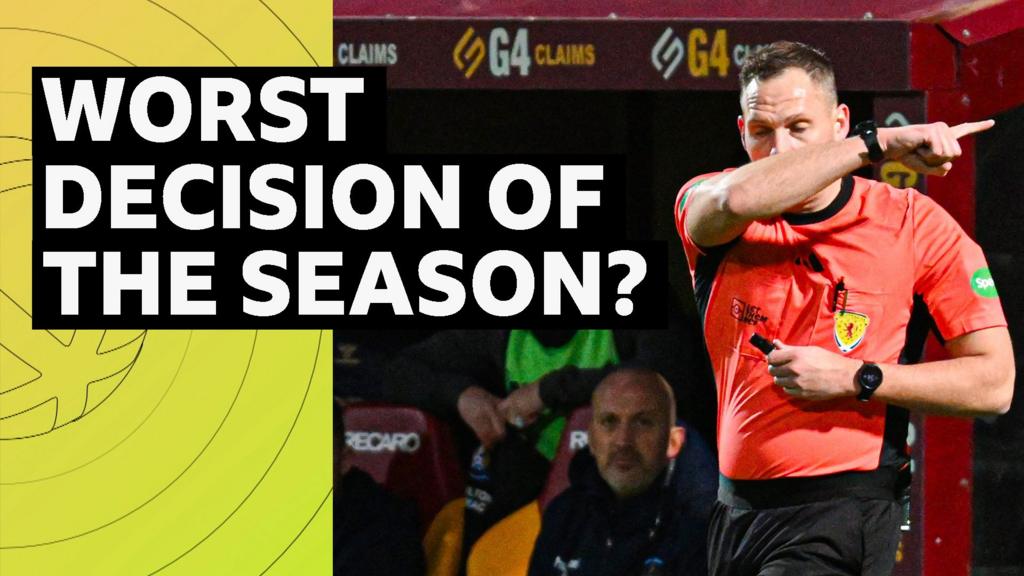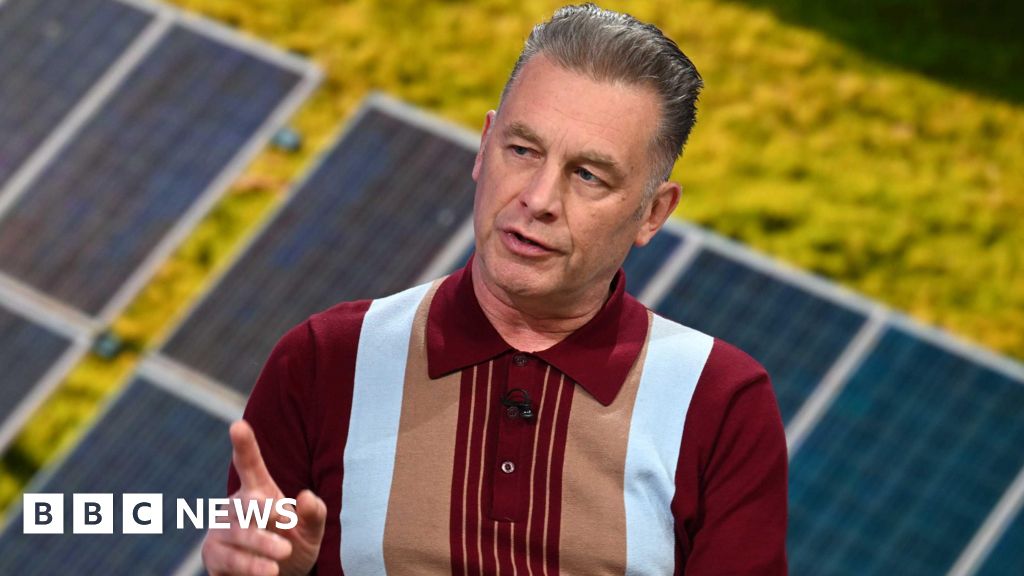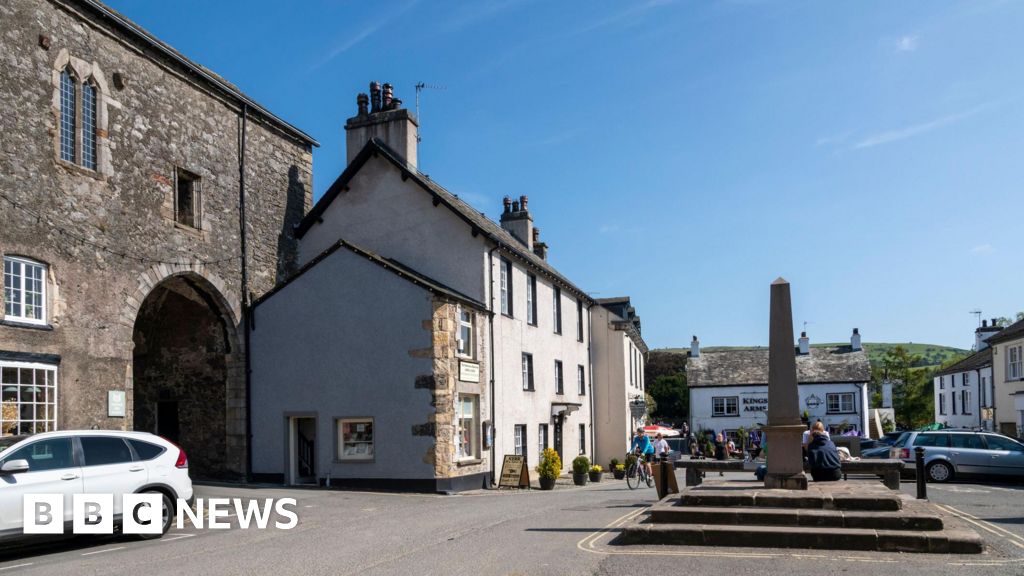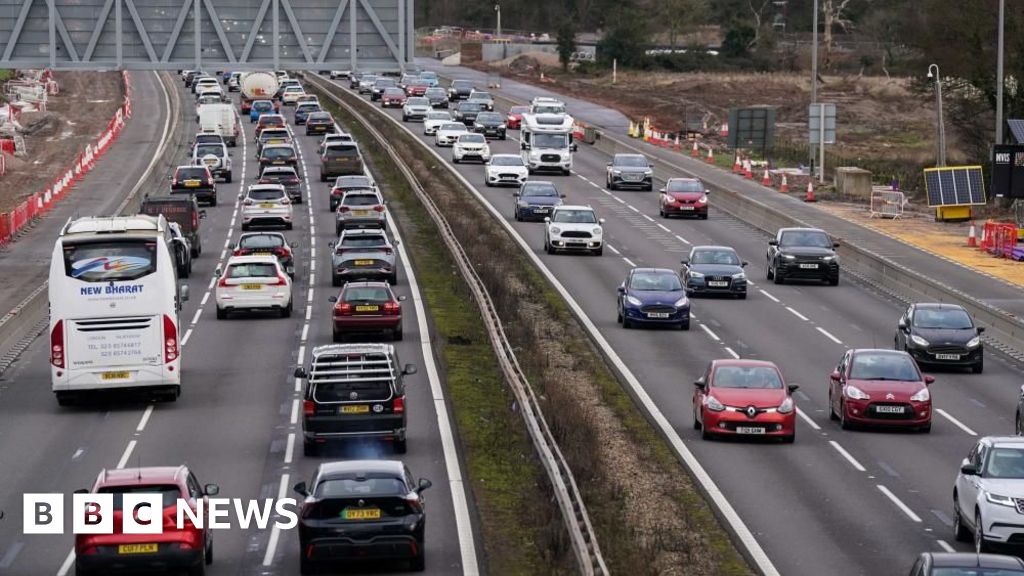
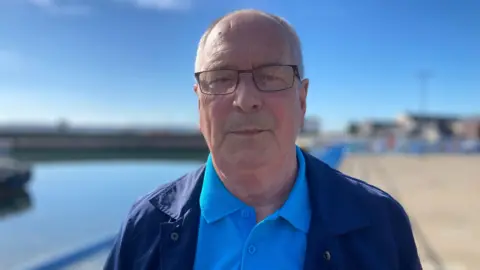 BBC
BBC
Michael Hughes was shocked as he had no symptoms
One in 80 men screened in Northern Ireland has an AAA – abdominal aortic aneurysm.
It usually causes no symptoms, and most people are not aware they have it.
If an AAA bursts, it leads to serious internal bleeding, which is fatal in eight out of 10 cases.
The Northern Ireland screening programme, which aims to reduce deaths from burst AAAs through early detection, monitoring and treatment, offers screening to all men in their 65th year.
An abdominal aortic aneurysm (AAA) is a widening of the main artery (aorta) in the body, which runs through the abdomen from the heart to the stomach.
As some people get older, the wall of the aorta weakens and expands to form an AAA.
Screening through an ultrasound scan of the abdomen, can detect an aneurysm by the measuring the width of the aorta.
'I know how precious life can be'

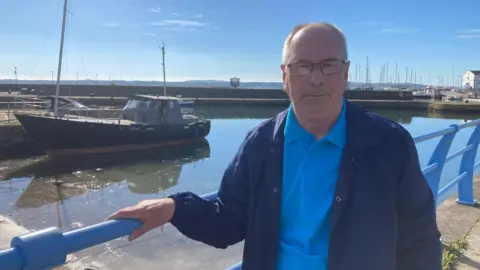
Michael says he was brought into hospital quickly
Michael Hughes, from Carrickfergus in County Antrim, had never heard about AAAs until he got a letter about screening.
His scan showed a large aneurysm (6.6cm/2.6in) which he said was a "big shock" as he had no symptoms.
"[I was] scared and frightened of it because it's something that I hadn't known about, but they said it was dangerously large," the 67-year-old said.
"I was told that if it happens to burst, basically, that's it - it's over.
"That's why I was taken in, why they found a space so quickly for me."
Michael had surgery 11 days later on 23 December 2022 and spent Christmas in intensive care in the Royal Victoria Hospital in Belfast.
He said it was good that it was all very quick "because you had less time to think about it".
Michael said AAA screening was "very important" and is urging everybody who gets a letter to get screened "because it can save your life".
"I take every day now," he said.
"I'm glad for every day more than I was before, because I know how precious life can be with it," he said.
Being screened every year 'reassuring'

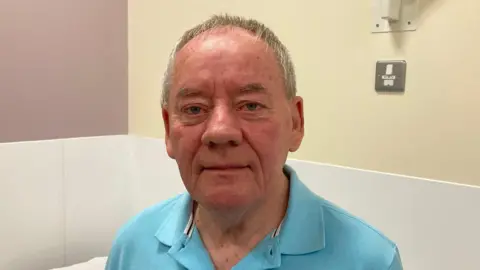
Trevor Johnston knew nothing about AAAs until he was called for screening
Since the programme started in 2012, more than 102,000 men have attended for screening, and more than 1,200 AAAs have been detected.
There are four possible outcomes at a screening appointment –
- No aneurysm detected - No further monitoring is needed as it is unlikely an aneurysm will develop that needs surgery.
- Small AAA – Monitoring every year
- Medium AAA - Monitoring every three months
- Large AAA – Referral to a hospital vascular team for further tests and to discuss surgery

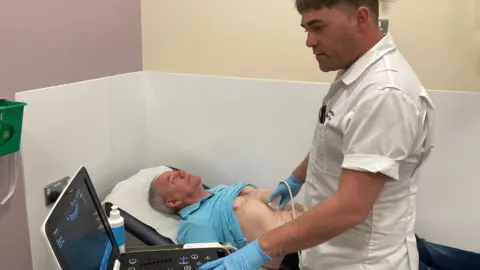
Trevor Johnston attending a screening
Trevor Johnston, from Belfast, said he was "devastated" when he was diagnosed with a small AAA (3.5cm/1.4in) two years ago.
"It started to sink in.
"Everything was going through your mind as to what happens from here, like how quickly does it grow?" he said.
But he said being screened every year is "definitely reassuring".
"They keep an eye on it to make sure it doesn't grow anymore," he said.
"You're coming every year hoping it hasn't moved because if it hasn't then you've nothing more to do.
"When it starts to get to 5.5[cm] you're more than likely looking at surgery, then you start to think about it a bit more," he said.
Like Michael, Trevor knew nothing about AAAs until he was called for screening.
He recommends it because "anyone who is diagnosed with it gets an opportunity to change their lifestyle and look after themselves a bit more".
'A really simple test that could save your life'

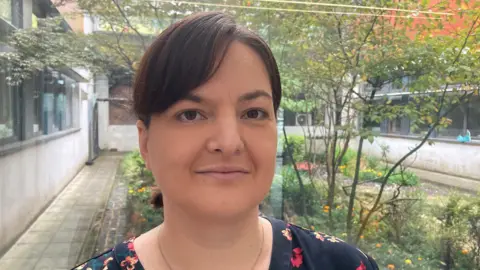
Dr McKee is encouraging people to go for screening
The Public Health Agency (PHA) said men were more likely than women to develop an AAA.
They are more common in older men, smokers, people with high blood pressure and people with other cardiovascular diseases.
Dr Christine McKee, a PHA public health consultant, would encourage people to attend for screening because "it is a really simple test that could save your life".
"Most people who have a AAA won't know it because they generally won't have any symptoms, but the risk is, over time the aneurysm could grow and could rupture or burst, she said.
"If that happens, particularly if you are not in a hospital, then the likelihood of that being able to be treated successfully is quite poor."
The PHA said a review of the screening programme has showed that, out of all patients with AAA hospital admissions, the number of people with a ruptured AAA is reducing.
'It's important to deal with this condition'

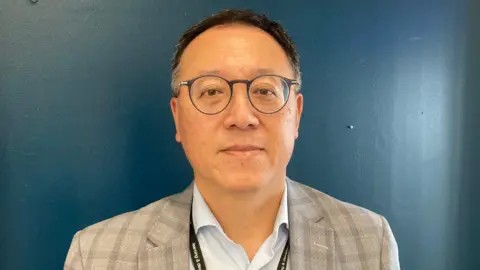
Louis Lau says aneurysm patients do not usually have any symptoms
Louis Lau, a consultant vascular surgeon and clinical lead for the aneurysm screening programme, said it is important for someone with a large aneurysm to have surgery if suitable.
"Aneurysm patients do not usually have any symptoms and when they have symptoms it usually means that the aneurysm has either burst or about to burst," which he said wasusually fatal.
He said there was no medication or treatment other than surgery that could stop an aneurysm growing or bursting.
"It's important to deal with this condition because we know that the outcome is so different between emergency surgery and elective planned surgery," he said.
Men who are over 65 and have not received a screening invite, or men who didn’t attend for screening previously if invited, can contact the programme to self-refer on 028 9615 1212.

 2 months ago
18
2 months ago
18
